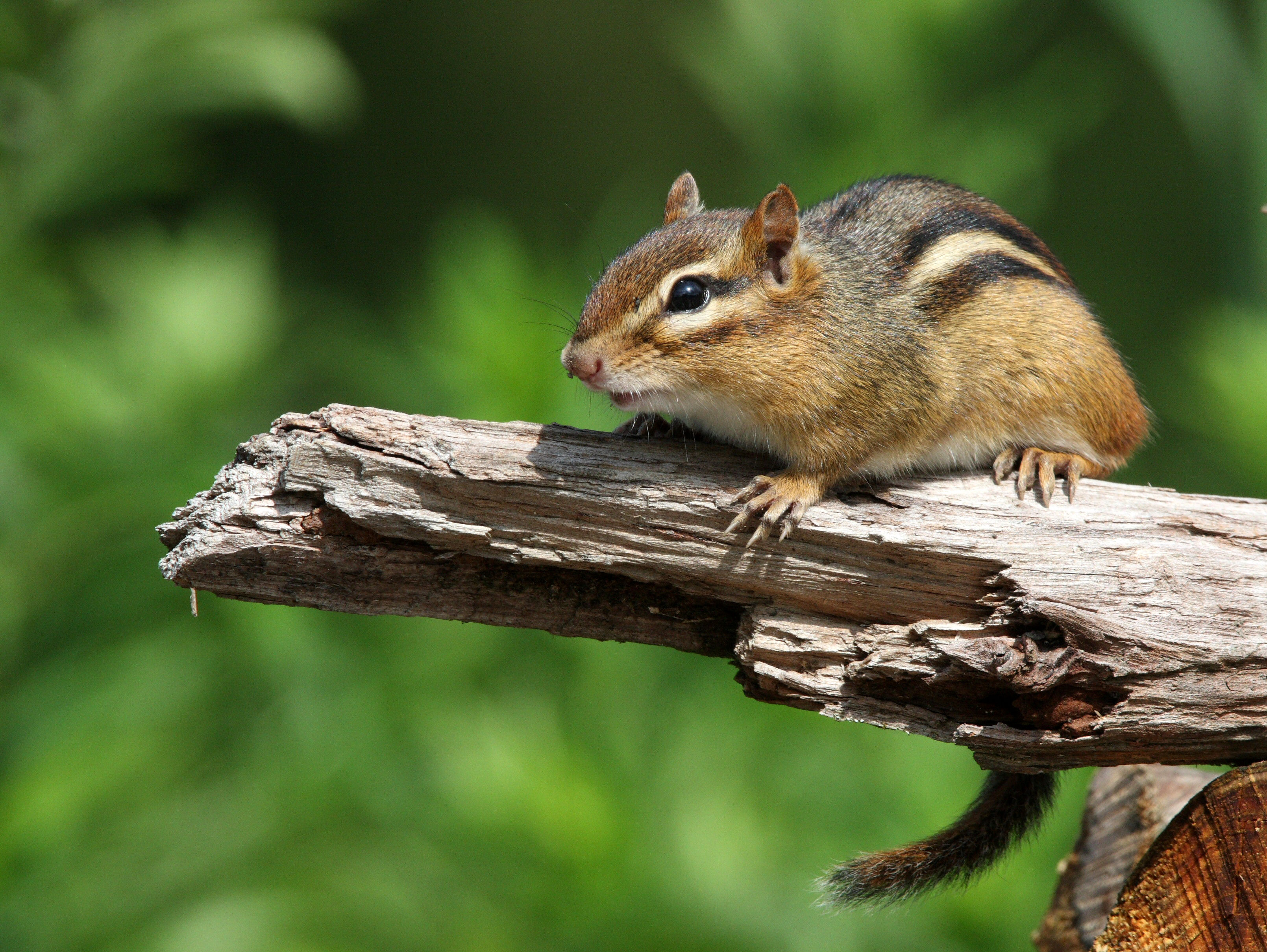Chipmunk
Chipmunks are small, striped ground squirrels found throughout North America. They are small, only 5-6 inches long. They primarily eat and store nuts, acorns, berries, seeds, mushrooms, insects, and carrion. They are inactive from late fall through winter, relying during that time on their stored food. Chipmunks are found in open forests and woodlot edges with rocky cover, but they also inhabit areas in and around homes. They dig extensive burrows in, around, and under plants, stumps, stone walls, rocks, buildings, patios, and foundations.
Chipmunks breed twice per year, in spring (April-May), then in summer (July-August), bearing 4 to 5 pups per litter. Breeding seasons should be considered when conducting nuisance control activity in order to avoid orphaning young.
Most chipmunk damage and problems are a result of:
- Feeding on plants and flowers
- Raiding bird feeders
- Burrowing
- Entry into basements, garages, etc.
Solutions for chipmunk problems
Laws and regulations to be aware of
Regulations for Massachusetts
|
|||||
While we attempt to provide guidance about state and federal regulations pertaining to specific species and control techniques, we do not provide information about local jurisdictions (city, town, county, etc.) where regulations may be more restrictive, especially as it applies to discharge of firearms, transport of animals or use of trapping equipment. Contact your local city or county government to inquire further. No guarantee is made that information (or lack of information) associated with a species or control technique is completely accurate or current. You should become familiar with federal, state and local laws before beginning any wildlife control activities. |




